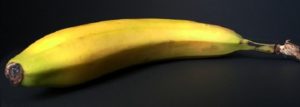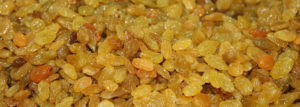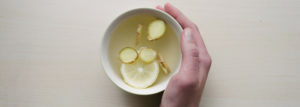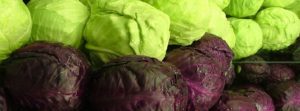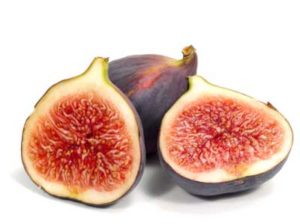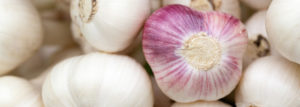Thirteen Foods That Can Replace Pills
HEALTH, 9 May 2016
BabaMail – TRANSCEND Media Service
Whenever we start feeling ill, the first thing we do is reach for the medicine cabinet. The problem with taking pills is that even though they’ll probably help with your predicament, they’re also bound to have unwanted side effects. The best solution is to use these 13 natural remedies, which are just as efficient as drugs:
- Bananas – Stress and anxiety
Next time you feel stressed, grab a banana! With an average of 105 calories and 14 grams of sugar, a banana will boost your blood-sugar levels and help combat hunger. Additionally, a banana contains 30% of your daily requirement of Vitamin B6, which helps your brain in the production of serotonin – a chemical that helps reduce stress.
- Yogurt – Constipation and gas
One-and-a-half cups of yogurt are packed full of probiotics that assist with digestion and improve the stomach’s ability to digest dairy and legumes – a major cause of gastric gasses.
- Raisins – High blood pressure
A large handful of raisins (approx. 60) contains over 200 mg of potassium, as well as a gram of fiber. These are strongly recommended as part of a diet to help reduce blood pressure. Recent studies show that the polyphenols in grapes, raisins and wine help maintain the circulatory system and reduce blood pressure.
- Apricots – Kidney stones
Four dried apricots contain two grams of fiber, 235 mg of potassium and just 3 mg of sodium. This combination is highly effective at preventing minerals from getting trapped in your kidneys, which are the cause of the most common kidney stones.
- Ginger tea – Nausea
A time-old proven treatment for nausea, ginger has also been scientifically proven to be helpful in dealing with nausea caused by motion sickness as well as morning sickness. It is as effective as anti-nausea medicine, but without the side effects (such as ‘cottonmouth’ and lethargy).
- Basil – Indigestion
Studies suggest that the eugenol in basil is highly effective as a gastric painkiller, and at reducing nausea, cramping and diarrhea by eliminating bacteria like salmonella and listeria. Basil is also effective at preventing halitosis.
- Pears – High cholesterol
The average pear contains five grams of the dietary fiber pectin, which helps clear the body of ‘bad cholesterol’ (LDL).
- Cabbage – Stomach ulcers
In a research published by the John Hopkins Medical School, it was found that the sulforaphane in cabbage helps battle the helicobacter pylori bacteria (a principle cause of ulcers). It is believed that sulforaphane may also help prevent gastric tumors.
- Figs – Hemorrhoids
Dried figs are rich in dietary fiber, which in turn produce softer feces and aids in reducing hemorrhoids. It also diminishes the likeliness of developing them.
- Potatoes – Headaches
A medium-sized potato contains 37 carbohydrates, which help reduce headaches by increasing serotonin production in the brain.
- Garlic – Yeast infection
Garlic contains many essential oils that help prevent the development of yeast infections.
- Chamomile tea – Heartburn
A great treatment for gastric inflammation, cramping, heartburn and gas consists of mixing two teaspoons of chamomile tea in a cup of boiling water and brewing it for about 20 minutes, then drinking it.
- Orange juice – Lethargy
The fructose in orange juice is a natural and fast-working stimulant, and research has proven the ability of Vitamin C to reduce damage caused by free radicals and provide the body with energy. Vitamin C is also crucial for maintaining iron levels in our blood, which keeps it oxygenated.
_____________________________________
Go to Original – ba-bamail.com
DISCLAIMER: The statements, views and opinions expressed in pieces republished here are solely those of the authors and do not necessarily represent those of TMS. In accordance with title 17 U.S.C. section 107, this material is distributed without profit to those who have expressed a prior interest in receiving the included information for research and educational purposes. TMS has no affiliation whatsoever with the originator of this article nor is TMS endorsed or sponsored by the originator. “GO TO ORIGINAL” links are provided as a convenience to our readers and allow for verification of authenticity. However, as originating pages are often updated by their originating host sites, the versions posted may not match the versions our readers view when clicking the “GO TO ORIGINAL” links. This site contains copyrighted material the use of which has not always been specifically authorized by the copyright owner. We are making such material available in our efforts to advance understanding of environmental, political, human rights, economic, democracy, scientific, and social justice issues, etc. We believe this constitutes a ‘fair use’ of any such copyrighted material as provided for in section 107 of the US Copyright Law. In accordance with Title 17 U.S.C. Section 107, the material on this site is distributed without profit to those who have expressed a prior interest in receiving the included information for research and educational purposes. For more information go to: http://www.law.cornell.edu/uscode/17/107.shtml. If you wish to use copyrighted material from this site for purposes of your own that go beyond ‘fair use’, you must obtain permission from the copyright owner.
